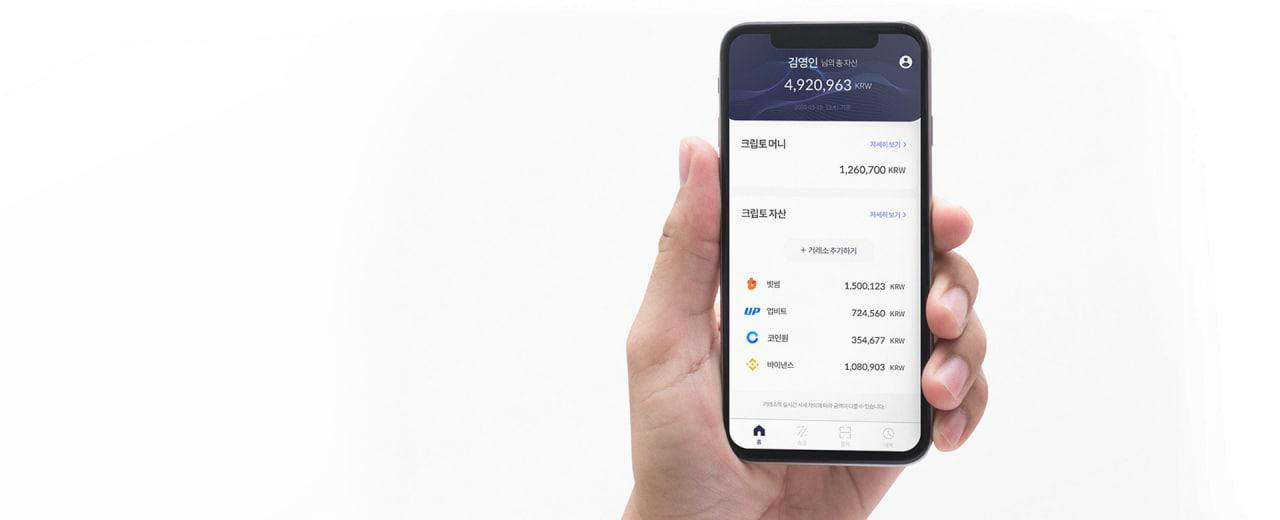
How to Secure Your Crypto Assets: Tips and Best Practices
You own your digital fortune. Though it's exciting to have crypto financial liberty, you have to secure your own treasure box. Being a crypto holder exploring distributed finance means you are your own bank, security team, and fraud prevention system all together rather than simply an investment.

What in Crypto Is Security?
The basis of the whole ecosystem, crypto security is not just a feature but also Consider your crypto wallet as a sophisticated safe drifting over cyberspace. The worst part is that in the realm of cryptocurrencies you are the security guard, locksmith, and alarm system technician all in one, not just the owner of the safe. From handling private keys (think of the ultimate skeleton key) to identifying phishing efforts that would make even the wiliest con artists envy, your crypto wallet security relies on your capacity to master a unique set of abilities.
Blockchain security transcends conventional cybersecurity. The stakes in this always shifting game of digital cat and mouse are your hard-earned cryptocurrency. Every transaction, every login, every change to your wallet all of which might be a weakness that needs strengthening.
Crypto Security Risks
Every crypto owner wishing to improve their bitcoin security must first understand the hazards associated with cryptocurrencies. This part looks at the main security issues in the crypto domain, therefore guiding your protection of your digital riches.
Phishing Attacks
One of the most often occurring dangers to crypto wallet security is still phishing attempts. Targeting gullible crypto holders, these advanced frauds try to pilfer their login credentials or secret keys. Often creating telephony websites or sending false emails mimicking reputable bitcoin exchanges or wallet providers, cybercriminals seek to obtain private access keys to crypto wallets.
Always double-check the URL of the websites you are visiting; be cautious of unsolicited emails or messages requesting your crypto wallet information; use bookmarks for the often frequented cryptocurrency websites to guard against phishing attempts.
Pro Tip: Turn on two-factor authentication on every account linked to cryptocurrencies.
Malware and Keyloggers
Your cryptocurrency is really at danger from keyloggers and malware. These rogue apps might compromise your crypto wallet security by getting into your smartphone. Particularly keyloggers may note your keystrokes, therefore possibly acquiring your login details or private keys.
Maintaining current with your operating system and antivirus program can help to reduce the danger of malware and keyloggers; avoid downloading programs from unknown sources. Store a big volume of cryptocurrencies only utilizing a hardware wallet.
Hacking of Exchanges and Wallets
Perfect targets for hackers are hot wallets and bitcoin exchanges. Mass losses for crypto holders might follow from a successful security breach. Although exchanges always enhance their security protocols, in the realm of cryptocurrencies hacking is still a worry.
Use reputable exchanges with a good security reputation; avoid keeping big amounts of cryptocurrency on exchanges; move to a safe wallet; think about combining hot and cold storage options to protect yourself against wallet breaches. Track your accounts often for any unusual activity.
Social Engineering
Attacks by social engineers take use of human psychology instead of technological weaknesses. In the crypto realm, where the promise of rapid riches or the fear of missing out (FOMO) could skew judgment, these strategies can especially be very successful.
Be wary of unsolicited offers or investment opportunities; check the identity of people or companies requesting sensitive data; educate yourself about typical crypto social engineering techniques; never share your private keys or recovery phrases with anybody.
Lost Private Keys
Private keys are your lifeline in the distributed world of cryptocurrencies. Losing your private keys can cause your crypto assets to be permanently lost. This issue underlines the need of private key management as it is specific in the crypto domain.
Pro Tip: Store your private keys or recovery notes in many safe places to avoid loss of them. Think about adding even more security with a hardware wallet. Back up your wallet often; look at multi-signature wallet choices for more protection.
Knowing these crypto security hazards can help you to guard your crypto assets pro-active. Recall that in the realm of cryptocurrencies you are your own bank, hence you have obligations regarding your personal security. Remain alert, never stop learning, and give your digital assets first priority in this always changing crypto terrain.
How to Secure Your Crypto Assets
Your digital treasure is only as secure as the vault you store it in. Let's explore the key techniques to strengthen your crypto assets against cybercrime cleverness.
Hardware Wallets for Long-Term Storage
See hardware wallets as your crypto's secure. Keeping your private keys walled off in an offline vault, these physical devices are the best cold storage option available. Regarding long-term hodling, physical wallets provide an unbreakable layer of protection that internet solutions just cannot provide.
Pro Tip: To prevent altered hardware wallets, always get them straight from manufacturers.
Two-Factor Authentication (2FA)
You're basically placing your assets behind double-locked doors by demanding two kinds of identification. For an additional degree of protection that will force hackers to rethink, use an authenticator app over SMS.
Pro Tip: Never disclose your 2FA codes!
Secure Your Private Keys
To share the risk, think about separating your keys across many safe places or using cutting-edge methods as multisig wallets.
Pro Tip: Never, ever save your private keys straight in text form on your computer or cloud storage.
Diversify Storage Methods
Never lay all of your eggs in one digital basket. Distribute your cryptocurrencies across many storage options, maybe including hardware wallets, paper wallets, and well chosen trading hot wallets.
Update Software Regularly
Maintaining current operating systems, wallet software, and security technologies can help you to stay ahead. Often fixing important security flaws, these upgrades just cover the holes hackers are eager to use.
Beware of Phishing Scams
Phishing schemes in the crypto are the vibrant lures used to ensnare gullible people. Be the sensible guy able to see through these lies. Review every email, verify URLs twice, and never click on emails offering free money or quick account operations.
Pro Tip: Bookmark your reliable crypto exchanges and always visit them straight, not via email links.
Use a VPN
Masking your IP address and encrypting your internet connection makes you effectively a ghost in the computer. Cybercriminals find it far more difficult to follow your crypto activity or start deliberate assaults because to this added layer of secrecy.
Pro Tip: Recall that not all VPN is made equally. Select a reliable supplier with rigorous no-logs policy.
Wallet Backups
Back up your wallet data—including your recovery seed—regularly and keep these backups in safe, offline sites. Think about waterproof and fireproof storage options; often the actual world poses the greatest danger to your digital data.
Pro Tip: Test often your backup and recovery system. Finding your backup doesn't function when most needed is the last thing you want.
Track Security Trends
The scene of crypto security is always changing and new dangers and protections are always developing. Participate in community forums, follow credible crypto security professionals on social media, and keep educated on the newest cyber security developments. In the crypto space, knowledge is also your shield; it is power.
Remember: The perfect security measure of today could be tomorrow's weakness. Continue to be alert and flexible.
Conclusion
Your crypto assets are only as safe as the steps you follow to protect them. Your protection mostly depends on your knowledge of and security for your private keys. The lifeblood of your cryptocurrency is these digital signatures, hence your first focus should be on their security. Combining this with strong security measures like two-factor authentication and hardware wallets forms a strong barrier against phishing frauds and illegal access.
Remember that, although these situations may seem rare, in the area of cryptocurrency security, it is better to be overprepared than underprepared. Always prioritize the protection of your private keys and be watchful against typical cryptocurrency risks such as phishing, malware, and social engineering assaults.
FAQ
1. Does quantum computing have the potential to compromise the security of my cryptocurrency wallet?
The crypto community is occupied with creating quantum-resistant algorithms to solve this issue. As a cryptocurrency holder, you have to stay current on post-quantum cryptography innovations and be ready to move to quantum-resistant wallets when they become available. With shifting technological challenges, this proactive approach will help you preserve a strong layer of security for your bitcoin investments.
2. Could my smart home gadgets jeopardize the security of my cryptocurrency wallet?
While not often highlighted, smart home gadgets might represent a security risk to your cryptocurrency assets. Avoid discussing critical crypto information near smart gadgets, and consider establishing a "crypto-free" zone in your house where no smart devices exist. This strategy contributes to the integrity of your crypto security in an increasingly connected home environment.
3. How can I safeguard my cryptocurrency during overseas travel?
Traveling overseas with cryptocurrency necessitates particular safeguards. Consider employing a hardware wallet to store the bulk of your cryptocurrency assets, while creating a second hot wallet with minimal money for transactions while traveling. Enable two-factor authentication for all accounts, ideally using an authenticator app rather than SMS. Use caution while using public Wi-Fi, and always use a VPN for enhanced protection. To prevent legal ramifications, you should also be informed of crypto rules of the countries you travel. A paper wallet might be a valuable backup when packed separately from your main baggage.
4. Can using social media jeopardize the security of my cryptocurrency wallet?
Your social media behavior might jeopardize your cryptocurrency security. Cybercriminals often utilize information provided on social media to conduct targeted phishing attacks or social engineering. To protect yourself, don't share information about your cryptocurrency holdings or transactions.
5. How can I keep my crypto assets safe from myself during emotional trading?
Keep your hardware wallets for long-term storage physically separate from your trading platform. Implementing personal guidelines, such as a necessary waiting time before significant transactions, may assist to avoid rash choices. Some providers include "sober second thought" options for high-value transactions, which may help ensure the security of your crypto assets under volatile market conditions.
6. How can I protect my cryptocurrency holdings in the case of a solar flare or EMP attack?
While uncommon, significant solar flares or EMP (Electromagnetic Pulse) strikes have the ability to impair electronic systems, including those used to access cryptocurrency holdings. To prepare, use a hardware wallet for cold storage and store it in an EMP-resistant container while not in use. Creating and securely storing paper wallets as backups might give an extra degree of security. Consider etching your recovery seed on a metal plate for added durability. Storing duplicates of your private keys or recovery seeds in various geographically varied places might assist secure access to your crypto assets even under severe circumstances. It is also a good idea to stay up to date on innovations in durable storage options for cryptocurrencies.
